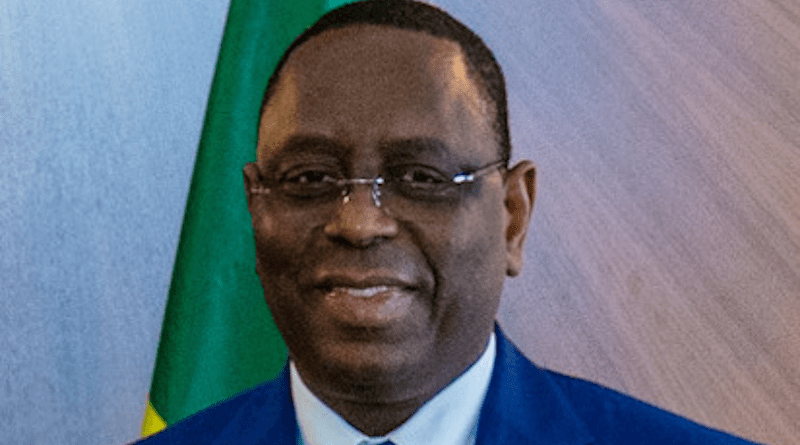Senegal Heads For March 24th Presidential Election – OpEd
After several weeks of civil mass protests across the country against incumbent President Macky Sall who took a decision to postpone presidential election originally scheduled for February 25. Now Senegal will finally return to the legitimate democratic polls with 19 candidates participating for the first round. It has been fixed on March 24 after series of condemnations from regional and continental blocs, and far-stretched accusations of attempts to violate the election provisions of the constitution by Macky Sall.
Chairman of the African Union Commission, Moussa Faki Mahamat, saluted the peaceful resolution of the institutional crisis in Senegal. He has urged the current president to utterly respect the constitution and peacefully leave office on April 2. He added that the decision to hold the election before Sall leaves office on April 2 “reflects the deep-rootedness and resilience of democracy in Senegal, of which Africa has always been proud.” The statement also said the African Union would deploy an observation mission during the voting week.
Macky Sall has attempted to dismantle democracy in the country, mass protests began to ruin on his admirable political career build down the years. As rotating Chairman of the African Union (from 2021 to 2022) and President of Senegal, Macky Sall, has excelled in speaking up on many development priorities and drumming home the importance of “unity in diversity” across the Africa and beyond.
On international platforms he fearlessly narrated African stories including the key priorities, the challenges and its future. His message generally for colleague African leaders is to speak “with one collective voice” in rallying for the continent’s sustainable development, sharpen external partners’ understanding Africa’s priorities and its role in the context of the emerging multipolar world.
While Macky Sall shines on the global stage, he has explicitly shown failure to adopt a more pragmatic approach to the ideals of democracy at home. By pushing away elections from February 25, Macky Sall already painted black the pride and prestige of Senegal which has been hailed as citadel of democracy.
That however, the Economic Community of West African States (ECOWAS) will continue to promote the ideals of democracy and good governance as well as accountability and transparency among members in the region. The bloc is consistently pursuing Burkina Faso, Mali and Niger to return to constitutional rule. President of ECOWAS Commission, Dr. Omar Alieu-Touray stated that “it is not the will of the people to move away from democratic principles, transparency and popular participation in governance. This is what ECOWAS stands for and we will continue to work with each and every member state to promote those ideals.”
The United States has cordial relations with Senegal. Sources noted that Senegal has had four presidents in its history, with power transferred peacefully from each administration to the next. This makes Senegal to be considered as strictly adhering to the basic tenets of democracy. Senegal’s fourth and current president, Macky Sall, was elected to a second term in 2019. It is, however, expected that Sall adheres to the principles of democracy, follow the deadline for his presidency as stipulated by the constitution.
As one of the most stable democracies in Africa and a model for religious and ethnic tolerance, it shares many fundamental values and international goals with the United States. Senegal is also a major contributor to regional peacekeeping operations. Senegal is an important partner of the United States in promoting peace and security in Africa. One of Senegal’s greatest challenges is fostering job creation, especially for young people, who are the majority of the population.
European Union has also shown concern over the forthcoming presidential election on March 24, expresses hope for fair and free vote without political crisis and sabotage. President Macky Sall, who is not standing for re-election. Senegal, a country of 18 million, is normally one of West Africa’s most stable democracies.
Senegal has one of the best developed tourist industries in Africa, but its economy depends on foreign assistance. The main obstacles to the economic development of the country are its great corruption with inefficient justice, very slow administrative formalities, and a failing education sector. It however enjoys cordial relations with its neighbors. Senegal, a member of the Economic Community of West African States (ECOWAS), is bordered by Mauritania, Mali, Guinea and Guinea-Bissau – these French-speaking countries.

